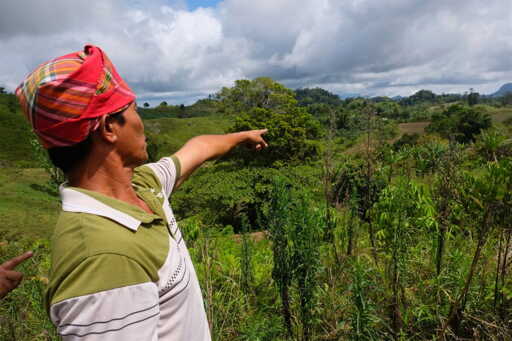SOUTH COTABATO, Philippines — It’s been three years since production began at a coal mine in the mountain village of Ned, some 1,500 kilometers, nearly 1,000 miles, south of Manila, on the southern Philippine island of Mindanao. Since then, more than 2 million metric tons of deposits have been carved out of the earth, leaving a wide brown scar through land once teeming with green vegetation. Since operation plans were announced, the mine has faced opposition from local Indigenous residents, farmers, and church and community organizations in the area, citing environmental and health concerns. A community consultation organized by the regional office of the Commission on Human Rights (CHR), a government agency, in Lake Sebu this September revealed that resistance to the project has only hardened. Since December 2022, at least three mountainous slopes have reportedly been lost to strip mining. Coal from the mine is loaded onto heavy trucks that damage public roads, cause noise pollution, and leave coal dust pollution behind them. Community members have complained to authorities and the mine operator about the inconveniences and safety and health risks brought by coal mining, while Indigenous residents say they worry about encroachment on their ancestral lands. Activists have also raised concerns about the lack of transparency surrounding the project, noting that recent revelations make it impossible to know who even owns the companies responsible for the mining. Heavy machinery is used to pile up coal extracts beside the road in the village of Ned in Lake Sebu township,…This article was originally published on Mongabay
From Conservation news via this RSS feed


